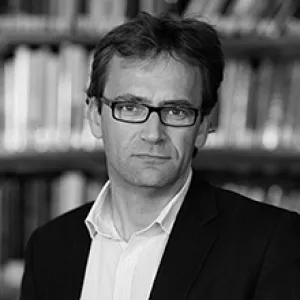Writing in Nature, Prof Jim Hall at the Environmental Change Institute (ECI) is one of a group of leading academics calling for the UN Sustainable Development Goals to be extended past their 2030 target date and updated.
In a paper led by ECI Honorary Research Associate, Prof Francesco Fuso-Nerini, the researchers say the SDGs need to consider the impact of artificial intelligence (AI) and include more input from communities affected by the goals, among other recommendations.
Prof Fuso-Nerini, Director of the KTH Climate Action Center, said: “Achieving the social and economic goals can’t be done at the expense of the planet.”
Halfway to the targeted completion date of 2030, many of the UN’s ambitious 17 Sustainable Development Goals (SDGs) are off track or progressing too slowly, due in large part to the slowing of the global economy by COVID and international conflicts. In the run-up to the Summit of the Future in New York next September, the authors are recommending the goals be extended to 2050 and retooled with an ambitious timeline and greater clarity about specific goals — such as those pertaining to climate and “planetary health”.

Prof Jim Hall, Lead for the Oxford Programme for Sustainable Infrastructure Systems (OPSIS), at the ECI was a co-author of the paper together with; Mariana Mazzucato, University College London; Johan Rockström, Potsdam Institute for Climate Impact Research; Harro van Asselt, University of Cambridge; Stelvia Matos, University of Surrey; Åsa Persson, Stockholm Environmental Institute; Benjamin Sovacool, Boston University; Ricardo Vinuesa, KTH Royal Institute of Technology; and Jeffrey Sachs, Columbia University.
Enacted in 2015, the 17 Sustainable Development Goals cover such global challenges as hunger, poverty, health, climate action, education, gender equality, peace and biodiversity. Each of the goals is comprised of specific targets.
Prof Fuso-Nerini says some goals and regions have progressed faster than others, but most of the world is lagging behind – particularly on climate and biodiversity targets. Furthermore, many targets are too vague and difficult to measure. Another key challenge is to prevent countries from progressing at the expense of others, he says.
The paper refers to an urgent need for updated pathways and milestones toward reaching all SDGs including integrating net-zero greenhouse gases emissions, as well as strengthening global governance of the transition through existing frameworks agreed upon by the members of the UN. The authors also say adapting the goals to be relevant to 2050 will require more inclusive consultations with scientists, indigenous populations, marginalized communities and the private sector.
As steps toward strengthening the goals, they recommend measures such as framing goals as missions with clear targets, and reforming the global finance architecture to enable more public investment in the reaching the goals.
Planetary health however occupies a central issue in the framework of the SDGs, he says, given that the world has already transgressed six of nine planetary boundaries that regulate the stability and functioning of Earth.
“Achieving the social and economic goals can’t be done at the expense of the planet,” he says. “What keeps getting left behind are the climate and biodiversity goals, yet the base layer for achieving the SDGs is a healthy planet that can support the achievement of all social and economic goals."
The paper has been selected to feature on the cover of the latest edition of Nature, with an accompanying editorial from the journal’s editor.
Read the paper in full: Extending the Sustainable Development Goals to 2050 — a road map

